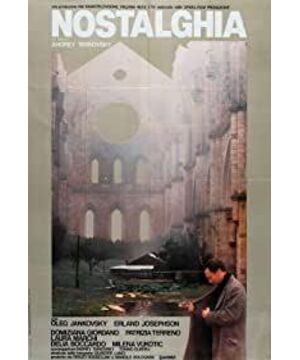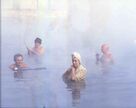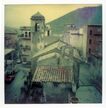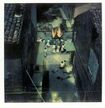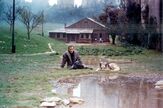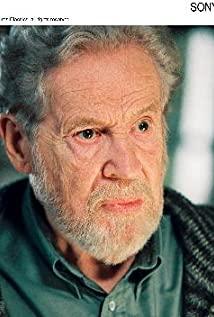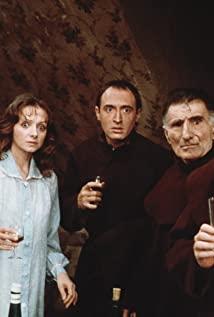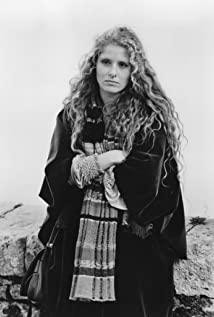Andrei attracts Eugenia, but their minds are not together.
Dominic, the lunatic who locked his family in his house for seven years. Light a candle and travel through the water. He lived in the water, and the pond where Andre stood later became his home. There seems to be some kind of belief, a firm belief. But then I didn't really understand the part of the speech and the self-immolation. At last Andrei went to fulfill his request, lighting the candle three times and crossing the pond.
Before Andre fell, I think he, like me, didn't fully understand Dominic's relationship with himself, just to fulfill the entrustment. Then he fell. Joy Split says that Dominic's return to nature is one with Andre's nostalgia; crossing the water is the use of Jesus' treading waves. It should be right to think about the religious feelings of the Russians. But I still don't want to think about it that way.
From the beginning, there are many images that are nostalgic: the poems of the Apennine, the Virgin, Tarkovsky's father, etc. that feel the same as the Russian steppe, etc. There is also the interviewed Sonoyovsky. But it wasn't until nearly halfway through when Eugenia read Andre's letter from home, "If I don't go back to Russia, I will die, those birch forests, the air I breathed in my childhood, I love my motherland," did she begin to vent. , just out of control. Andrei stood in the water, talking to Angela with fables; standing alone on the street, he found his old self in the mirror... He can't go back to Russia, his nostalgia has become fate, inextricable. Finally, in front of the pond, with the dog by his side and the hut behind him. The camera pulls away and it's all a little bit of it in a Roman courtyard.
The rich images, the flying birds and the spilled milk bottle on the ground, are all familiar in the mirror.
The most wonderful thing is the sound of water and the image of water. In the hotel, the rain of the dark night; in Dominic's house, the rain of the leaking house; the spirit of the last rain. These feelings may not be expressed in the form of language, poetry or drama.
View more about Nostalghia reviews


